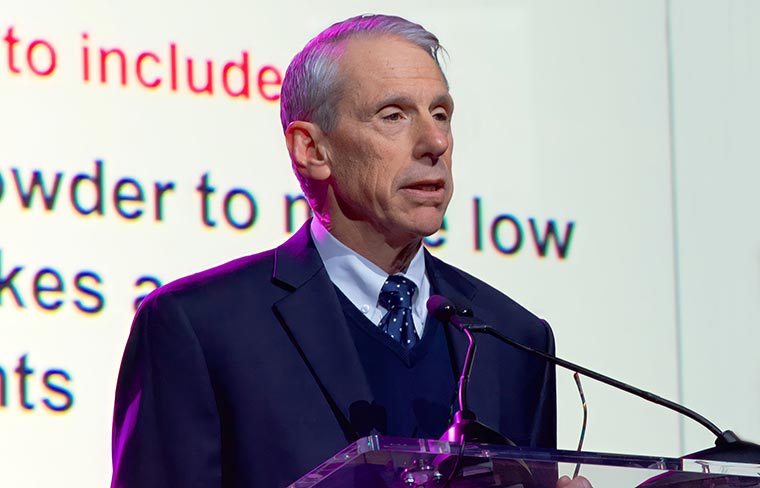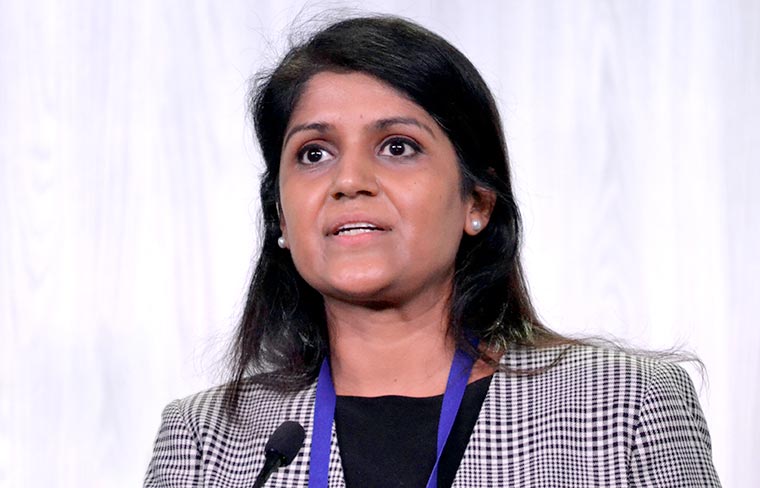-
Plenary III highlights emerging insights into knee OA, PMR, APS, gout, JIA, and RA
In the third plenary session at ACR Convergence, Stephen Messier, PhD, discussed a pragmatic randomized trial that demonstrated how intensive diet and exercise can reduce knee pain in knee osteoarthritis in community-based settings as effectively as in academic settings.
-
ARP Keynote speaker reignites passion in practice by redefining success
People who work in healthcare are taught to be stoic and objective. At the same time, 60 percent of these professionals report experiencing mental health repercussions from their work. Kathleen Flarity, DNP, PhD, CEN, CFRN, FAEN, FAAN, addressed confronting these challenges.
-
Late-Breaking Abstracts session features innovative research from six timely studies
New discoveries pave the way for possible new approaches to treating patients with autoimmune and autoinflammatory diseases. Research by Giovanni Adami, MD, could support anti-osteoporotic treatments for patients taking low-dose glucocorticoids.
-
Investigators unveil draft of new classification criteria for antiphospholipid syndrome
New classification criteria for APS presented at ACR Convergence 2022 are under review by ACR/EULAR and pending final approval. The highly specific, evidence-based criteria will help identify patients with a high likelihood of APS for clinical research, said Medha Barbhaiya, MD, MPH.
-
ACR drafts inaugural guideline for integrated care for RA
The first ACR guideline for integrated treatment related to rheumatoid arthritis provides direction on physical, psychosocial, mind-body, and nutritional interventions through a shared decision-making approach. Bryant England, MD, PhD, RhMSUS, and other speakers underscored the need for an interprofessional team to effectively treat patients.
-
First-ever CPPD classification criteria presented
The proposed criteria, in development since 2019, will help clinicians more accurately diagnose and treat calcium pyrophosphate deposition disease and encourage renewed research into this disease, said Sara K. Tedeschi, MD, MPH, who was one of the co-leaders of the criteria project.






